Ibero-American Collection
Close to one thousand metres of books and periodicals from and about Spain, Portugal and Latin America. The collection includes literature, history and social sciences, but there are additional sections on, among other subjects, art, linguistics and philosophy.
About the collection
The Ibero-American Collection amounts to some 50 000 works, about 75% of which are in Spanish. Portuguese and English books make up about one tenth each of the collection, while remaining works are in other languages (mainly Swedish, French, German and Catalan).
The majority of the books of the collection that are available for home loan are held in the open stacks on floor 6B at the Humanities Library. Here, the books of the collection are divided into four major sections: fiction, literature, realia (history, biography, social sciences and more) and finally "other" works. The books are categorised according to a somewhat intricate system, with abbreviations for the respective countries/regions and subjects, but overviews and inventories on the gables of the shelves guide the patron in browsing. Please consult the staff at the information desk on floor 7 if you need assistance.
On floor 5A are some 300 periodicals belonging to the Ibero-American Collection, and on floor 7A is a reference section including dictionaries, encyclopedias and more. The rarities of the collection are held in the closed stacks, and can be requested for study in our reading room.
The Ibero-American Collection further includes a number of maps, audio cassettes, CDs, 120 000 pages of microfilm from 19th century Chile (the ”Letras chilenas”) as well as large parts of the library of Magnus Mörner (1924-2012), professor of history at the Gothenburg University.
History
The collection traces its origins to the Ibero-American Institute, established in 1939 by Nils Hedberg (1903–1965), language teacher at the School of Business, Economics and Law in Gothenburg. With funds from the Gothenburg business sector, he built the institute into a node for teaching, research and cultural exchange, with a focus on the Spanish- and Portuguese-speaking world. He modeled the effort on the Ibero-American institutes founded in Berlin and Hamburg in the 1920s. Among the Swedish enterprises there was a great interest in having access to, among other things, language education in Spanish and Portuguese, in order to facilitate trade with South America.
Initially, the library of the institute was created largely with donations from private individuals, publishers and the Swedish embassies of various South American nations. In 1967, the institute was transferred to the Humanities Faculty at the University of Gothenburg, and the book collection was now placed along the walls of the classrooms of the Faculty of Romance Languages, located in the building known as Språkskrapan. Later, the Ibero-American Institute moved to its own premises at Viktor Rydbergsgatan 24.
The majority of the Ibero-American collection can be browsed in Libris and Supersearch. This applies to, among other materials, all books printed after about 1990. An estimated 10 000 older volumes can be found exclusively through a card catalogue located next to the collection on floor 6B at the Humanities Library. These volumes are currently being catalogued in Libris and Supersearch.
For three decades, the collection was curated by Honorary Doctor Anna Svensson (1958-2021). Internationally, she was the library's representative in the European network for documentation and information about Latin America, and part of the network board. Her research and documentation make visible many individuals who have, in various ways, been active within the Spanish and Latin American field, and her bibliography is both extensive and varied.
Acquisition history
When the Ibero-American Institute closed down in 2007, the Gothenburg University Library acquired its library, which was then named the Ibero-American Collection. For the first ten years, the collection was held at Campus Linné, near the then recently established School of Global Studies, where the research and tuition of the institute had been relocated. In 2017 the collection was moved to the Humanities Library.
Gothenburg University Library works actively to continuously acquire new materials for the collection (some 200 titles annually) and accepts, to some extent, donations that adhere to the profile and history of the collection. The older materials also include a large amount of donations.
Many books have been added to the collection due to the prints exchange of the Ibero-American Institute, particularly in the decades when the institute had its own periodical, in collaboration with publishers in Madrid and Lisbon. In these years, prints were exchanged with other faculties and establishments around the world.
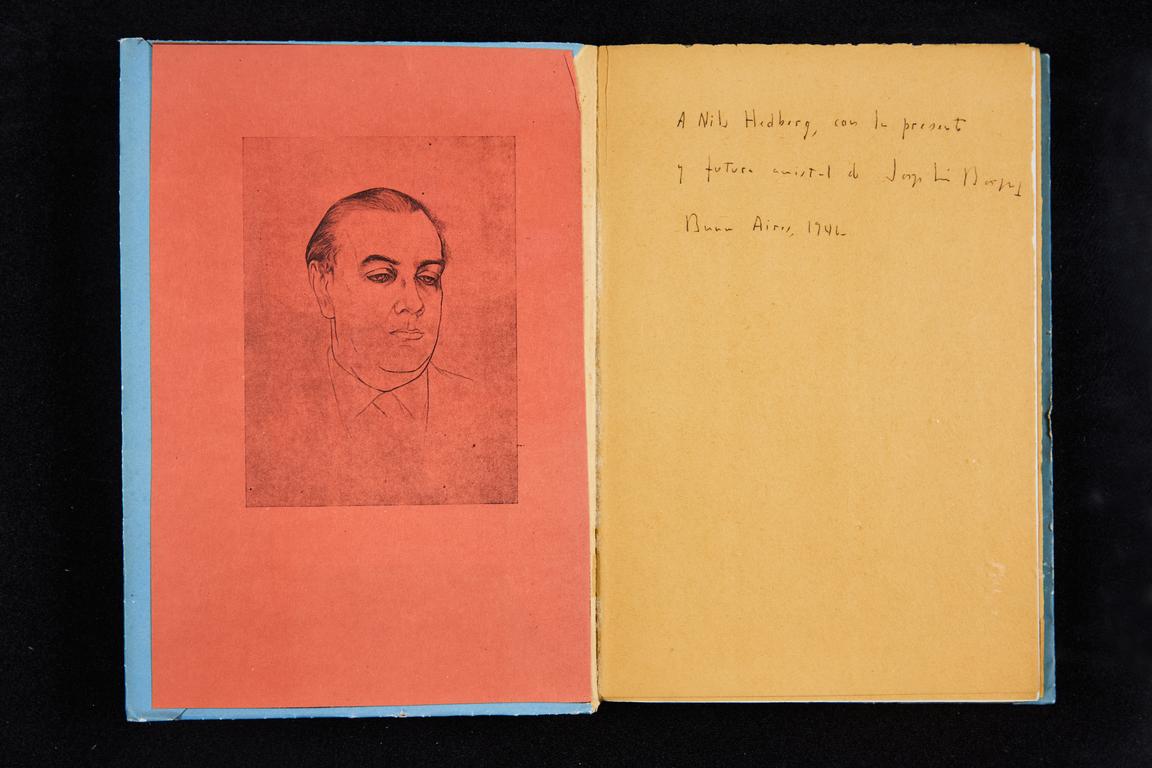
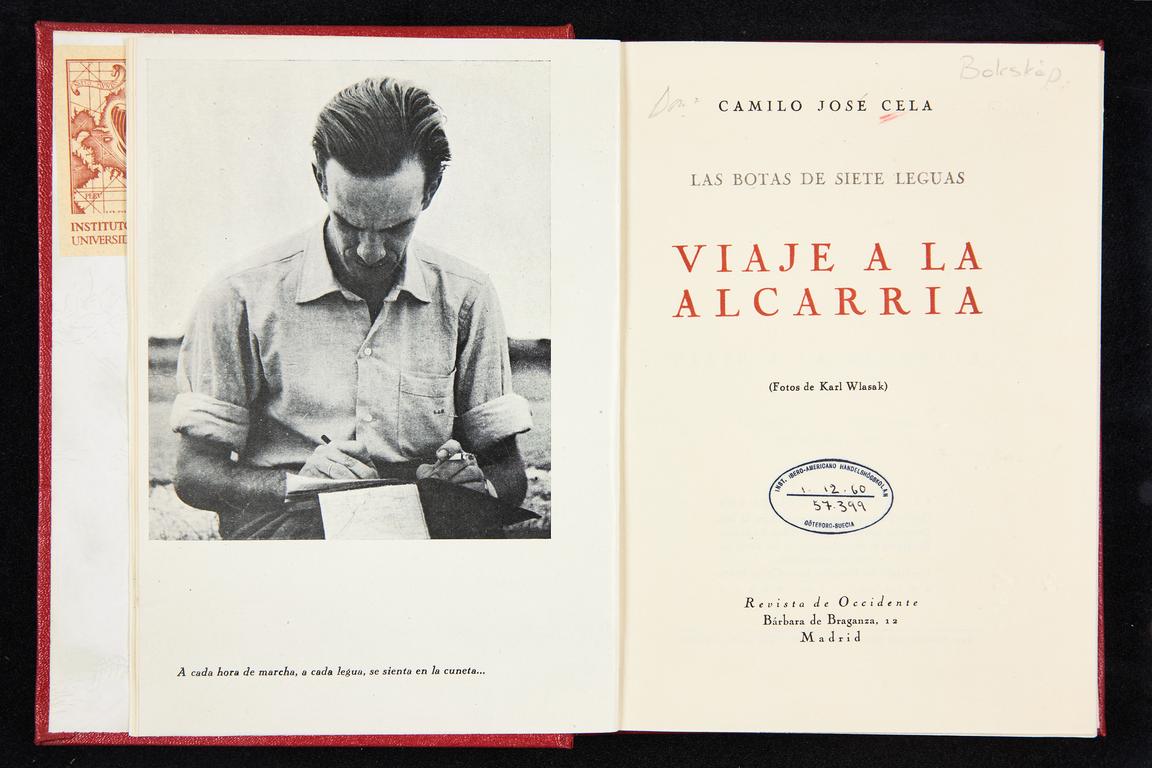
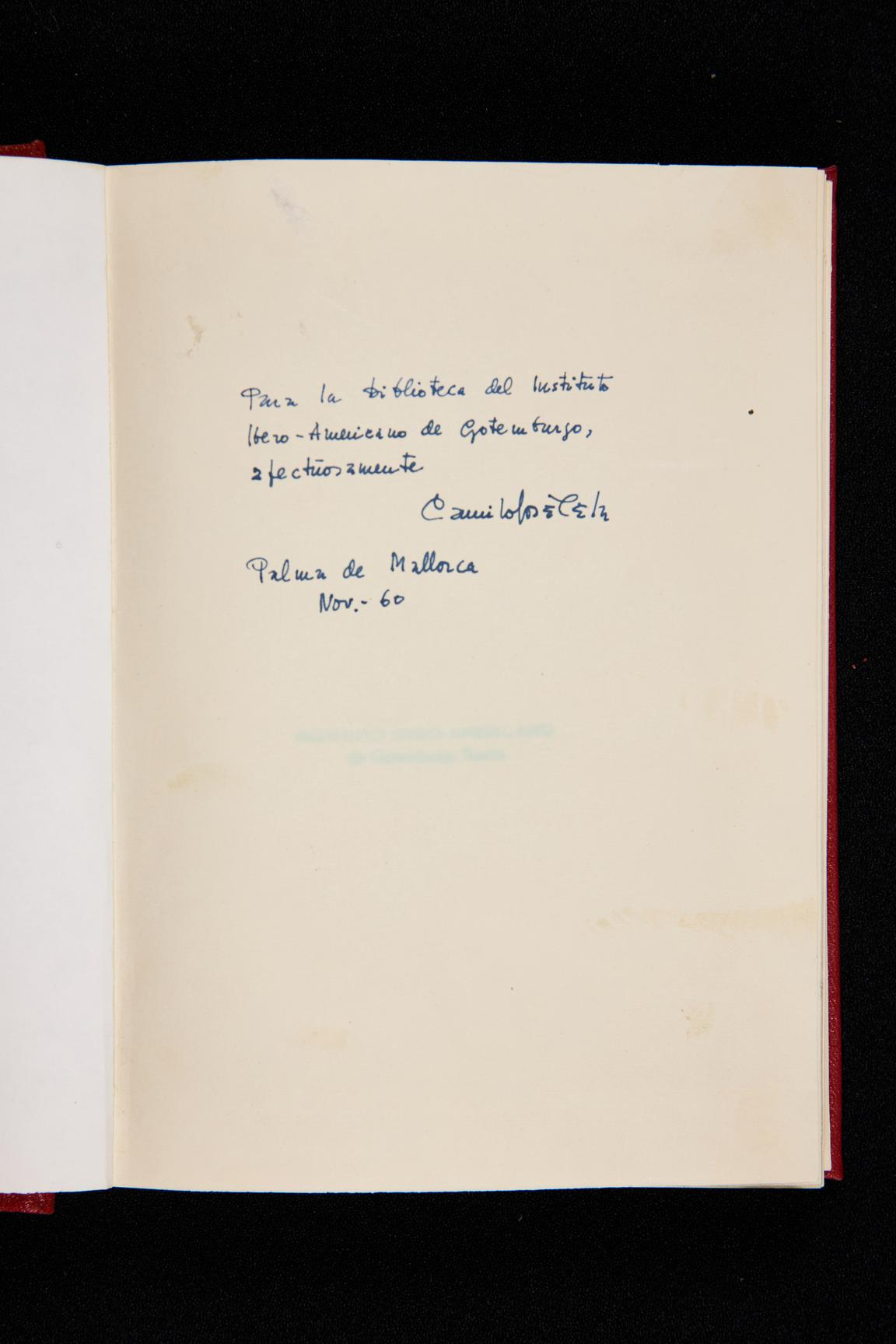

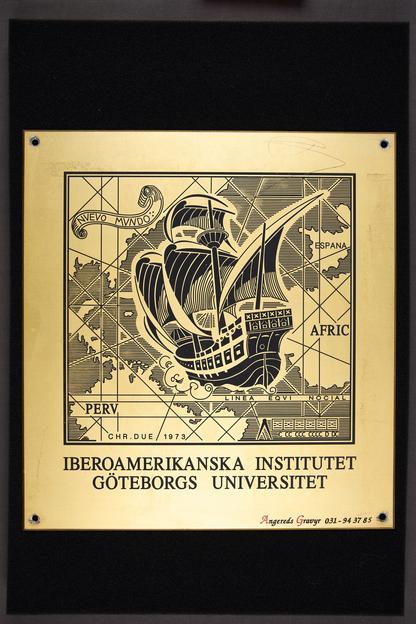
Access the collection
The collection is mainly available in the open stacks at the Humanities Library, floor 6B (available for checkout).
Parts of the collection are held in the closed stacks, and are only available in our reading room.
Catalogue
In Libris
In Supersök
A complementary card catalogue of older materials is available next to the collection.
Humanities library
Renströmsgatan 4
405 30 GOTHENBURG
Phone: 031-786 17 45

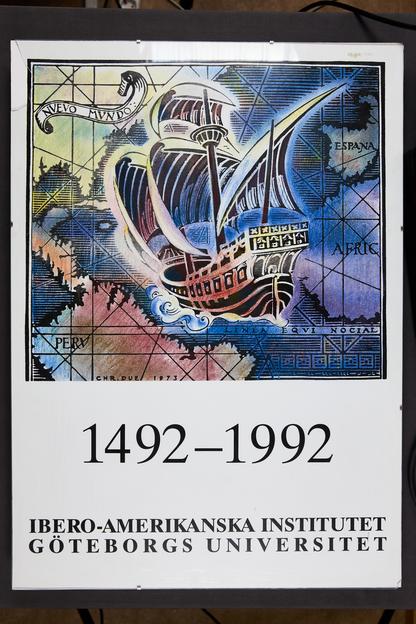
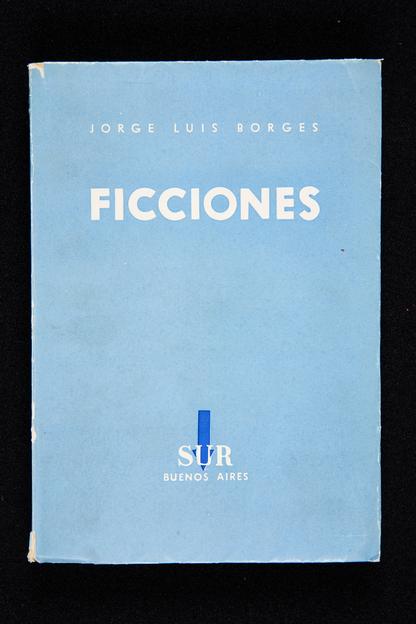
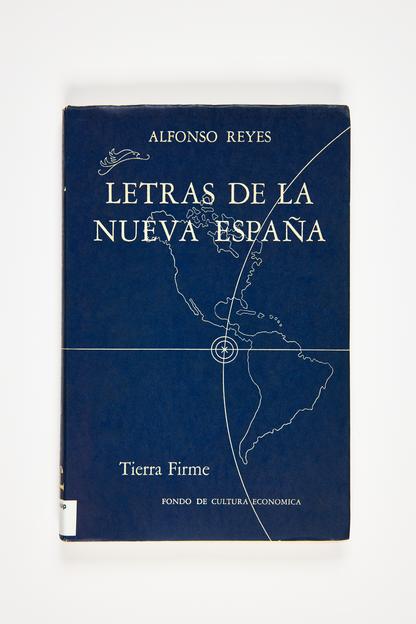
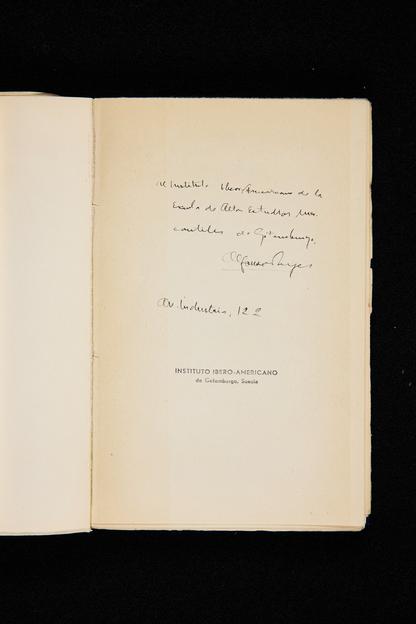
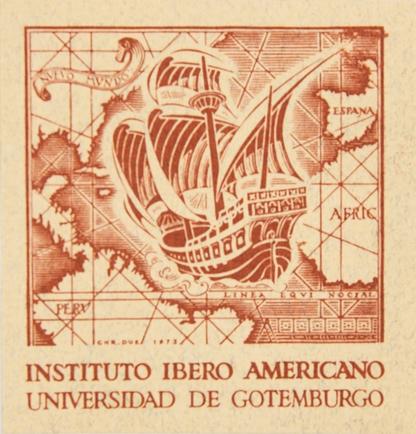

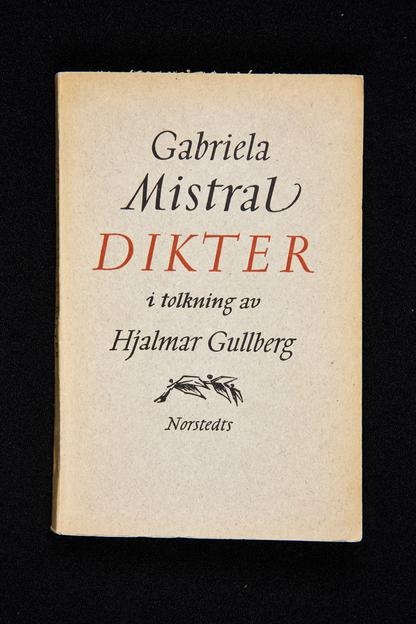
Text:
Joakim Lilljegren
Read more
Anna Svensson Humanistiska fakultetens hedersdoktor 2020
Instituto ibero-americano 1939–1949. Göteborg: Handelshögskolan, 1950. [A history of the first ten years of the institute.]
Lilljegren, Joakim. Latinamerika på Renströmsgatan, Marginalia [blog post 2021-09-16]
Svensson, Anna. “Colecciones latinoamericanistas suecas”, Anuario Americanista Europeo 4–5 (2006–2007), p. 372–384.
Söhrman, Ingmar. ”De romanska språken i Göteborg.” TBA.
Suggested research topics
- An overview of the collection's contents. What is represented here, and how does it mirror the time and context of the material?
- Biographical research
- Thanks to the Ibero-American Collection, the Gothenburg University Library likely holds the largest body of Spanish-language fiction in the Nordic countries. Along with the section of literary studies, this enables a large variety of research within languages and literature.
- Many 20th century prints from Latin America, Spain and Portugal have been lost in their countries of origin because of various wars and oppressive regimes. In some cases, the Ibero-American collection can provide materials for research that are not available in the country of origin.
- Provenances in the collection. Since the Ibero-American Collection largely consists of donations, it includes many dedications and autographs, (see, for example, the blog post ”… dessa eländiga sidor, med tillgivenhet …” at Marginalia). The majority of these dedications, which testify to the literary contacts between Gothenburg and Latin America, are as yet unexplored.
- Institution history. The archive of the Ibero-American Institute is held by the central archives of the University of Gothenburg, (archival number 94:1). Protocols, correspondence, photographs, news clippings and other materials from the archive may constitute vital components for studies concerning the Ibero-American Collection.
Please contact us if you have any suggested research topics you would like to share!